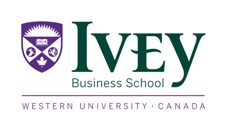As part of the exploratory dialogue for one of my recent executive coaching assignments, a C-level executive of a decades-old business frankly admitted, “I don’t think I have the skills to lead the business to the next level.”
In his late thirties, the CEO in question had successfully led his organization to profitability from the brink of disaster in less than five years (after an experiment with professional management did not yield the desired result). By all accounts, he was a dynamic, motivated and purpose-driven leader with aspirations to build a great institution. He was skilled at empowering people and willing to give them space to operate. And yet, he was mired by self-limiting beliefs.
I probed him with the following two questions:
- What do you think are the skills needed to lead effectively at this level?
- Why do you think you don’t have these skills?
Personal insecurities were not something that this CEO typically wanted to share. But these questions breached a dam. A lot of self-doubt related to the limits of his knowledge and skill set was bottled up in his mind and heart. This is not an unusual scenario.
CEOs are human. And that’s OK. Nevertheless, to be effective at managing the paradoxes of leading, leaders need a sense of comfort with vulnerability. The key to developing this is understanding the role. To set the corporate destination and provide direction getting there, too many CEOs believe they need to have all the answers, all the time. But like Google’s Eric Schmidt says, companies are run well by asking questions, not having all the answers.
Not understanding this sets leaders on the path to failure. When CEOs believe they are responsible for finding all the answers, they often feel the need to have the most skills and expertise on the team — which is a destructive belief system, and not just because it is counterproductive in harnessing the collective acumen of the organization. Indeed, a feeling of inadequacy at the top leads to management aloofness, not to mention a lack of assertiveness, which creates organizational confusion and loss of direction, even anarchy.
When a self-defeating mindset exists at the top, CEOs need to open their eyes to other ways of dealing with dilemmas. Working with a leader coach, they can learn to focus on hiring employees with the functional skills needed to move a business forward rather than wasting time worrying about not having them.
What is the best way to harness the skills of others? I am asked about this a lot. My answer is always the same: Learn to deploy the three skills CEOs need the most — or what I call the listening–sensing–observing troika, which collectively offers compelling powers.
In the coaching case cited above, the CEO was miffed by this answer, noting “these are pretty common skills.” To him, my listening–sensing–observing answer initially appeared to be very much a “much ado about nothing” statement, which is why it took a fair amount of convincing for him to understand that this troika of seemingly ordinary skills represents the abilities that CEOs actually need the most.
When harnessed well by CEOs, the troika offers extraordinary power. Collectively, these three skills go a long way toward galvanizing an organization for future success. Unfortunately, the need to master them does not consciously figure on most CEOs’ radars. And that’s a problem because these skills are not typically formally taught, so they must be consciously developed.
LISTENING
Most organizations have the requisite expertise to create the future; what they often lack is imagination to do things differently. But simply by really listening to both customers and employees, CEOs can break the glass ceiling of imagination.
When an organization fails to listen actively to its customers/non-customers, it misses signs of apathy and dissatisfaction — which, when recognized, are what seed innovations and new offerings and keep a business relevant. Most organizations, of course, strive to hear customers. But many do so while overlooking the need to hear employees. And when employees are not adequately heard, good ideas are left unexpressed and potentially great employees underperform and appear to lack skills.
Setting up a culture of active listening requires CEOs to lead by example. I know of one leader at a global IT firm who sets a great example of “customer centricity” by travelling almost 240 days per year to listen to customers. This is worth the effort because doing so unlocks the so-called “creativity of the crowd,” while creating lots of excitement for experimentation and abundant energy for innovation, which are critical for charting future success.
SENSING
During the steady growth phase, organizations commonly develop slack in the system, which impedes fresh thinking, rendering the existing decision-making process counterproductive because it does not sense emerging market trends and customer preferences, not to mention regulation reforms. This typically happens because contentment with the status quo lulls management into complacency and robs employees of the power to influence enterprise decision makers. And when people start feeling depleting empowerment, they feel unwanted and a culture of indifference kills growth aspirations and creates toxic work conditions that can cripple the organization.
To battle the slack buildup, companies need a detecting culture that can uncover hidden problems and identify unwanted behaviours. To develop this, CEOs must lead by example and do whatever it takes to harness an organization’s collective breadth, elicit extraordinary commitment to deliver more amongst employees, and pre-empt apathy.
OBSERVING
To be effective at asking the right questions, CEOs must always be on the lookout for what is portrayed in rosy pictures painted by employees as well as what is deliberately being hidden in the shadow of growth and success.
A deep sense of observation will always help ensure that the right people advance and the right behaviours are promoted while setting the stage for for a productive and innovative culture. But observing what is not being said or actively hidden requires a specialized approach that can cut through the “blinds” created by successive middle management. And this process must be driven from the very top.
When it comes to being a CEO, operational skills and subject-matter expertise are not as relevant as they once were. The role of top leadership today is to create a future. In other words, CEOs are paid to set a sustainable and profitable course forward and adjust that course when a new direction makes sense. This isn’t easy. It requires building a corporate climate that allows new ideas to flow, new possibilities to germinate and new scenarios to emerge. And that requires unleashing the collective breadth of skills across an organization through substantial listening, sensing and observing. But if you deploy the power of the troika, insecurities over lacking skills held by others will not get in your way.



A good read; and explanation of what I call the intangibles that could lead a person to success or failure. I believe not all people can actually see these intangibles, and of those that can: not many are willing to give up what they see as their control, by allowing others to influence the direction the organization needs to go.
lnsigthful, thoughtful and illustrative brief worthy of application. It’s very helpful and useful to leaders of both start ups and existing organisations. Great reading material!
Great insight…towards successful career path..
Hi Himanshu,
Read it.. thoughtful and intrinsic
Enjoyed
Best regards, Mukesh Chaudhary
IIFT- collegue
Simple attributes that are difficult to master. While it’s essential for CEO’s to envelope the troika, what is seemingly more important is to inculcate similar behavioural skills amongst other C-level executives and thought leaders down the line. Probably a good topic for a follow-up article may be ‘developing a learning-sensing-observing culture for maximum impact’
Awesome piece. This has struck my reasoning. Thank you very much.
Himanshu, thank you for a thoughtful article. I agree with Naina. Great opportunity for a follow up article. Considering that troika basically represents a skill set required of a successful coach, a role that executive assumes to succeed, his influence/impact on organizational growth increases when others in a c-suit and below learn to operate in a coaching environment. Great argument for the coaching culture advocate!:)
Dear sir,
Good to hear these attributes of CEO
These simple things have to be followed and CEO
Should set Example
Implementation is the most imp part of a Leader
Regards
G.Surareddy
B.E( Mech):M.tech( IIT,Cryogenics):Aiche:FIE: CE: FOV
Industrial,gases,Cryogenics consultant(International)
Two of the three skills (listening, observing) are skills that can be learned and practiced, although not exercised often enough. Sensing is a different challenge altogether. Recognizing market trends, customer preferences, or possibly a deteriorating internal culture is a skill that must be grasped by all who want to lead.
Good insights into key skill sets and some good take aways.
Interesting piece offered at the right time. The principle is applicable in all the areas including government and politics!
I am wondering how to develop the skill of sensing. A real good piece.
Himanshu , This is really a wonderful article. CEO can not know all the intricacies of the business but he certainly can and should use these skills to get the best out of the resources available to him, including human resources. Now , merely deploying these skills will not suffice, the correct interpretation of these inputs is certainly required and that is possible only when EQ is high .I assume that gentleman is fairly intelligent. Unless , the CEO is fair and objective in his assessment , he is likely to hire wrong people , promote wrong people and certainly bound to miss the alignment required to produce results. Col Virendra
Simple, yet powerful insights for the CEOs and those aspiring to be CEO-ing! Thanks Himanshu for sharing this wonderful piece of wisdom!
Very well articulated. Kindly do write a follow up articles